- Duncan Edwards
- Albums and Singles
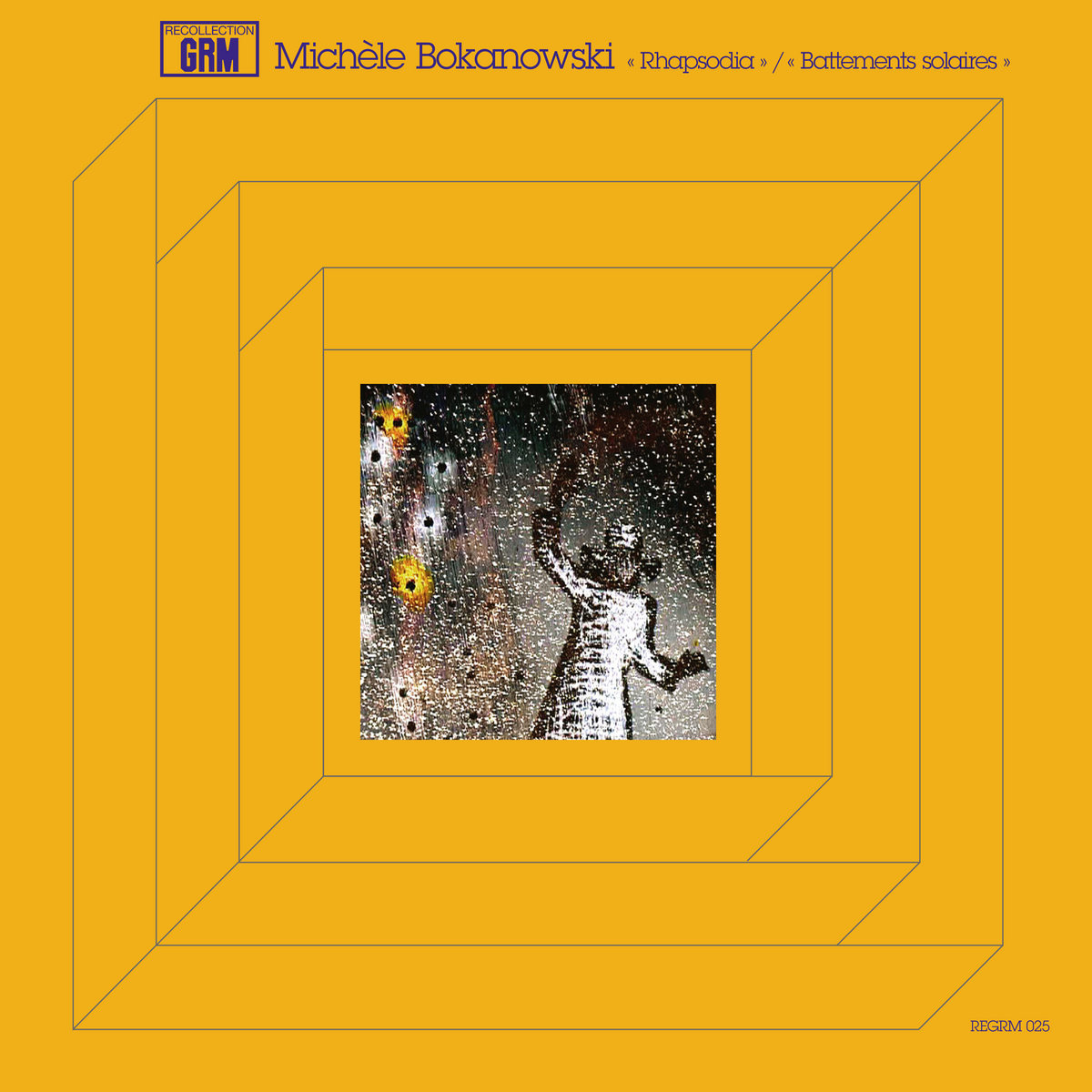 This electro-acoustic release by Michèle Bokanowki consists of two pieces. "Rhapsodia" from 2018, is a stunning work in two movements with a short interlude, dedicated to choreographer, Marceline Lartigue. "Rhapsodia" is as close to perfection as I can imagine music to ever be, with the texture, the pace, the changes, and the timing of the changes all working in an organic and unhurried way. "Battlement solaires" from a decade earlier, is the soundtrack to Patrick Bokanowski’s film of that name. Initially I felt this second piece might be best heard with visual images, but by the third hearing I utterly love it as a stand alone work, too.
This electro-acoustic release by Michèle Bokanowki consists of two pieces. "Rhapsodia" from 2018, is a stunning work in two movements with a short interlude, dedicated to choreographer, Marceline Lartigue. "Rhapsodia" is as close to perfection as I can imagine music to ever be, with the texture, the pace, the changes, and the timing of the changes all working in an organic and unhurried way. "Battlement solaires" from a decade earlier, is the soundtrack to Patrick Bokanowski’s film of that name. Initially I felt this second piece might be best heard with visual images, but by the third hearing I utterly love it as a stand alone work, too.
In these compositions, Bokanowski makes incredibly subtle changes and only after each element and has fully blossomed. She is such an experienced composer that the spiritual depth and attentiveness to uncluttered illumination in these tracks is at times quite staggering. If these sounds were a fireworks display, it is as if she does not let the momentum lag yet never obscures a single spark or any fading light trail with another rocket until they have been properly seen. This requires confidence, honesty and patience. Her music does not labor over specific ideas, or attempt to trigger vague or irrational feelings, or nostalgic sentiments. There is no need to approach it as a puzzle to be solved or message to be deciphered. There are hundreds of possibilities here and I will not isolate any one idea, other than to say take the time to allow the music to bloom and ripen. About five years ago I attended saw a showing of Patrick Bokanowski's L'Ange/The Angel at the Nasher Sculpture Center, in Dallas. Michèle Bokanowski created the soundtrack for that exquisite film; her music matching the images with such amazing quality and sensitivity. It almost brings a tear to my eye to recall that the couple were present for the screening, sitting together, looking very humble and decidedly un-showbiz. Bless them both as artists and bless you for listening to Rhapsodie/Battements solaires and seeking out L'Ange.
Read More
- Anthony D'Amico
- Albums and Singles
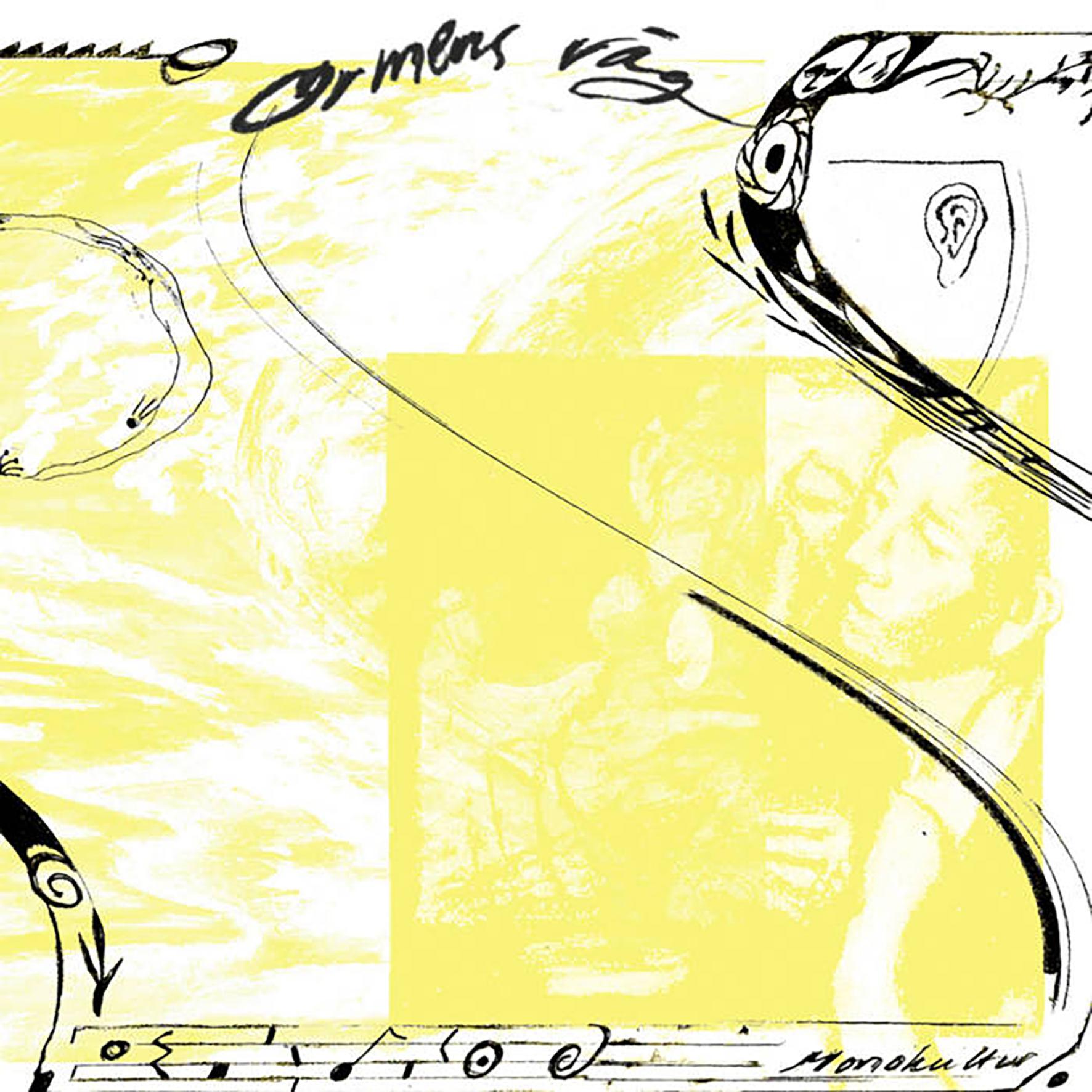
This is the second full-length from the Swedish minimal wave/post-punk duo of JJ Ulius (Skiftande Enheter) & Elin Engström (Skiftande Enheter/Loopsel). Significantly, Monokultur spawned from the same fertile milieu that brought us Neutral, Enhet För Fri Musik, Treasury of Puppies, and every other great Gothenberg project, so it is not particularly surprising that Monokultur are excellent as well. While I suspect that Enhet För Fri Musik will remain securely ensconced as my favorite emissaries from Sweden's thriving underground scene for the near future, Monokultur definitely craft some of the strongest singles of anyone in that scene. In fact, they almost resemble a variation of Neutral in which Sofie Herner and Dan Johansson suddenly realized they could celebrate hiss-soaked grayscale murk and write catchy, hook-filled songs at the same time. That is not meant to disparage Neutral (whom I also enjoy), but Monokultur definitely have less of a scorched earth approach to human warmth and lovely undestroyed melodies. In any case, this album is excellent, as Monokultur are getting very close to perfecting a vision in which gnarled post-industrial artiness, bedroom pop, and 4AD-style romanticism can seamlessly intertwine and enhance each other.
Ever/Never & Mammas Mysteriska Jukebox
The wobbly, bleary, and hypnagogic/somnambulant opener "Decennium" offers a fairly representative crash course in what to expect from Ormens Väg: hushed, intimate, and melancholy lo-fi pop songs that feel like they were recorded alone in a small apartment in a cold, bleak city at 3am in 1982. In fact, Monokultur capture urban alienation so exquisitely that it is legitimately surprising that they are a duo, as it is damn hard to imagine two people on such a dark wavelength ever connecting with one another. It is similarly surprising that Engstrom and Ulius are able to articulate their deep malaise in such a tenderly melodic and charmingly ramshackle way, sometimes approximating a promising minimal wave duo that discovered hard drugs, heartache, and Throbbing Gristle to disastrous impact on their commercial prospects.
To my ears, “Demokrati” is probably the piece that captures Monokultur at their best, as it combines a simple, lovely organ melody with a slowly, chugging rhythm and hushed male/female vocal harmonies, but there are several similarly successful pieces that veer off in divergent directions. For example, the Ulius-sung "För Sent" sounds like a rough late-period Joy Division demo for another "Atmosphere"-style hit, except Ian Curtis is uncharacteristically sleepy, distracted, and Swedish. The effect is weirdly charming, which is likely due to the quietly lovely backdrop of quivering, hallucinatory synth melodies, warped guitar shimmer, and a languorously sensual pulse. Elsewhere, "Pennan i handen" sounds like a ghostly DIY country song or a sleepily sexy, ennui-soaked inversion of The Cramps who were more inspired by brutalist architecture and Ingmar Bergman films than classic rockabilly and sleaze. My other favorite pieces are "Vårdagjämning" and "Människor och träd," which respectively enhance the Monokultur aesthetic with heavy, haunted-sounding industrial loops and a lovely spoken word performance from guest Charlott Malmenholt. The latter piece comes as a quite a surprise at the end of the album, as it feels almost upbeat and tropical (think "Cocteau Twins make an impressionist exotica album…but with poetry!"). The only real caveat with this album might be that it will probably be too gloomy for some, but I think Jack Rollo nailed Monokultur's appeal in his liner notes ("sudden moments of heart-wrenching familiarity"), as it seems like there is always an unexpected melody, poignant chord change, or cool twist just around the corner with this album.
Samples can be found here.
Read More
- Anthony D'Amico
- Albums and Singles

This is the debut of a new project from Babe, Terror's Cl√°udio Szynkier, who has apparently undergone quite a dramatic creative upheaval over the last couple years. Then again, it is quite hard to tell what would constitute expected terrain for an artist who seems to seamlessly bounce between being a killer techno producer and channeling Morton Feldman-esque neo-classical abstraction. Nevertheless, something radical is definitely happening with Szynkier, as he is following 2020's acclaimed departure Horizogon with a pair of fresh and different departures: Birmania is intended as the companion piece to an intriguing feature-length film set for release next year (A Princesa de Rangoon). The film's unique premise ("apparitions, mystical presences and lost stories from S√£o Paulo and Rangoon are discovered over the course of a summer in the future") provides some helpful insight into the unusual vision that guides Birmania, as Szynkier is deeply interested in both how civilizations rise, fall, and transform and how traces of the past haunt the future. Of course, Szynkier is also the hapless sufferer of a chronic ear problem, so perhaps filmmaking and a softer, more abstract strain of music is primarily an ideal way to remain creatively vital without subjecting oneself to seismic bass and thumping kick drums. In any case, Szynkier is an increasingly fascinating and unique composer and Birmania is a fitfully wonderful album. While not every piece quite hits the mark for me, the ones that do can feel quite revelatory.
The first of the "quite revelatory" pieces on Birmania is the opening "Mandalay Moulmay," which begins as a disorienting and haunted-sounding classical piano performance in which melodies seem to constantly overlap and drunkenly stumble into one another. It calls to mind a more melodic Morton Feldman due to its murky dissonances, but also feels like a sublime feat of dissolving loop architecture. Amusingly, it additionally sounds like curdled, rotted, and deconstructed cover of "What a Wonderful World," which is darkly appropriate for these times. As it unfolds, however, things grow steadily more surreal, as pitches and speeds start unexpectedly shifting and synth/rave elements starts to bleed in or blurtingly intrude. For the most part, I am less keen on Birmania's futuristic elements than I am on Szynkier's artfully frayed and distending string and piano themes, but the gorgeous synth break at the center of "Mandalay Moulmay" was the hook that first drew me into the album, so I suppose Szynkier’s instincts are probably solid.
The following "Cocokyoun" is another highlight in a somewhat similar vein, though the blearily descending piano melodies feel more like the haunted ballroom territory of The Caretaker this time around. Again, the blurting intrusions of artificiality (the synths) are an interesting choice, but they increasingly feel like they serve an important role texturally (and they always serve a role conceptually, given the album's theme of interweaving past and future). The overall feel is akin to a film loop of a classical piano performance that gradually starts getting snagged and burning up until a gnarled backwards string motif supernaturally fades in for an unsettling finale. To my ears, the most perfectly realized piece on the album is "Pyapoon," which feels like a dusty 78 of a piano/harp duet is eerily smearing, dissolving, unraveling, and fading in and out of focus. And then it seems like Tangerine Dream's Phaedra suddenly crash lands in the middle of it all, which is definitely not something I anticipated Once it recovers from that shockwave, "Pyapoon" continues its original trajectory towards a fever dream crescendo of heaving, churning, and time-stretched classical loops. While those three pieces feel like the strongest ones on the album to me, the remaining ones are all in a similar vein and the same themes continue to appear throughout the album. As such, Birmania is quite an absorbing whole and a great headphone album rather than a collection of discrete individual pieces. It also feels like the sort of album that is too weird and singular to have an unconflicted opinion about, which probably means that Szynkier is doing something very right. I suspect I just need to catch up to whatever wavelength he is currently on, as he seems to be nearly peerless at constructing sad, beautiful, and soulful loop collages when he sets his mind to it.
Samples can be found here.
Read More
- Anthony D'Amico
- Albums and Singles

The latest opus from this shapeshifting Salford collective is a welcome return to the punk- and hardcore-damaged brutality of 2017's Just Say No to the Psycho Right-Wing Capitalist Fascist Industrial Death Machine, which makes perfect sense, as there has certainly been plenty to get enraged about over the last few years (appropriately, the album's title translates as "The Death Of Meaning"). Interestingly, however, these pieces were actually recorded back in 2019 "in an old mill in Manchester" in an attempt to capture the intensity of the band’s live sets ("two drummers and a load of cabs in a room pushing each other forward"). As founding member Paddy Shine notes, “this record is a really strange beast because of the big change that happened between mixing and recording” in which "confusion was king for us all." Given that, I definitely wonder how much the collapsing outside world crept into and shaped both the mixing aesthetic and the album's ultimate form, but the only thing that actually matters is that La Mort Du Sens is yet another killer Gnod album and it is one that can be roughly (and accurately) described as "one the best Swans albums ever made by a band that is not actually Swans."
The album amusingly opens with a voice asking "do you want to tell us anything about this record in particular?" followed by a cacophony of overlapping voices and radio waves. And then an ugly snarl of noise cuts through it all and Gnod launch into one of the most perfectly brutal songs that they have ever recorded ("Regimental"). As with most pieces on La Mort Du Sens, "Regimental" is essentially just a killer groove with some barked vocals over it, but the beauty lies in the details and in how masterfully the band distill their various influences into something seamlessly perfect and crushing. For instance, "Regimental" feels like the best moment from some great metalcore band's discography combined with top-tier No Wave guitar ugliness, a ribcage rattling bass tone, and the righteous anger of a great crust punk band. Those six glorious and unbroken minutes of focused, unrelenting ferocity and violent snarls of guitar noise are heaven to me, but Gnod admirably spend the rest of the album gamely trying to top that opening bombshell. While I do not think they quite succeed, they managed the next best thing: releasing a five-song album in which there is probably a five-way tie for "best song" (or at least something damn close to it).
On "Pink Champagne Blues," for example, an explosive and crashing intro gives way to a punky double-time groove of pounding toms, muscular strummed bass, and howling guitar noise. Elsewhere, "The Whip and the Tongue" feels like the missing link between a thuggishly repetitive Swans classic and Era-era Disappears (and with a wild sax solo thrown in for good measure). The following "Town" is probably the piece closest to my heart, however, as its lurching, snarling, and stumbling groove is beautifully enhanced with sneeringly sarcastic lyrics about all the "real jobs" and "factories" in Gnod's "fucking great town." It's a level of blunt, well-aimed biliousness that probably would have made Mark E. Smith nod approvingly. In keeping with the album's theme of punishing repetition and crushing heaviness, the closing epic "Giro Day" basically feels like the burning wreckage of some classic Relapse album like Times of Grace-era Neurosis: just relentlessly insistent locked groove-style tribal toms, squalls of ugly noise, and pure aggression. For those keeping score, all of that amounts to five rippers in a row, which makes La Mort Du Sens one of Gnod's all-time finest albums to date. As much as I enjoy Gnod's artier and more psych-inspired tendencies, I have to concede that they seem like an absolute force of nature when they leave all that behind to single-mindedly focus upon rolling over me like a goddamn bulldozer.
Samples can be found here.
Read More
- Anthony D'Amico
- Albums and Singles
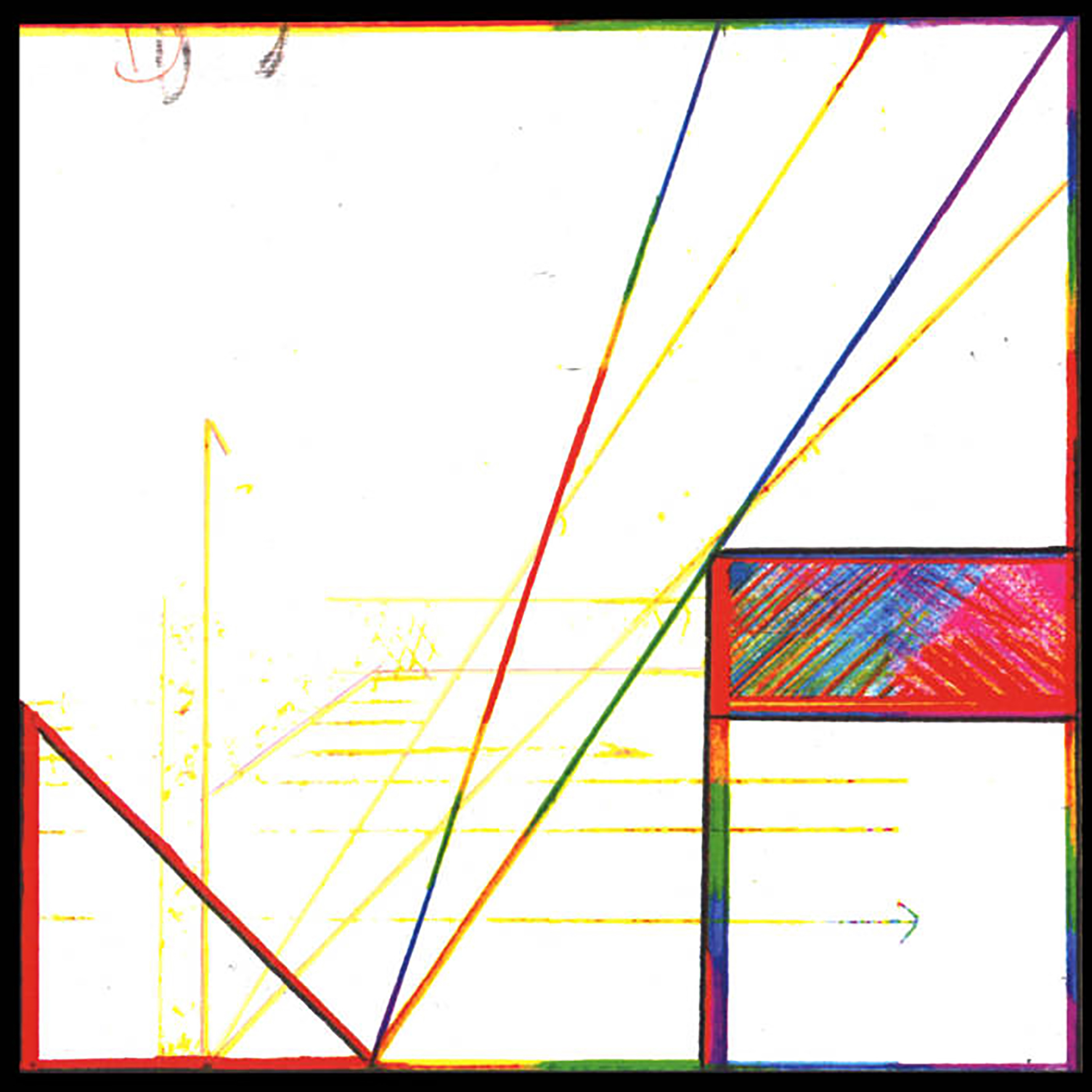
This is my first encounter with this Chicago-based composer/guitarist/improv enthusiast, but it seems like Earthwork may unexpectedly be the optimal place to start with Wyche's art, as it feels like the culmination of a number of meaningful threads that extend deep into his past. For example, the album's most immediately gratifying piece is built from a guitar riff that Wyche wrote in high school and the album itself was (at least partially) edited and assembled as a "spiritual exercise" in the wake of his grandfather’s funeral. Also, the album's title and a healthy portion of its vision were inspired by Wyche's childhood in a New Jersey family of working class contractors and construction workers. For the most part, however, those inspirations are abstracted into unrecognizability, as Earthwork sounds more like it was composed by someone who grew up in a darkly lysergic jungle or in the center of some kind of Zen bell ritual. That stylistic variety admittedly makes it somewhat challenging to pin down "The Daniel Wyche Aesthetic," but Wyche is one hell of a composer for someone who is primarily known an intense improv artist.
The opening "This Was Home" spans the entire first side of the LP and documents an ensemble performance at the 2015 Oscillations Series in Chicago. It opens with gently rippling vibraphone motif over a backdrop of cello drones and something resembling shortwave radio noise. Gradually, it becomes a twinkling and heaving sea of subtly spacey psychedelia. It then lingers as a pleasantly simmering and phantasmagoric soundscape for awhile, but things quickly start to become more compelling around the 7-minute mark, as the three guitarists start to mimic eerily whistling nightbirds and some kind of demonically possessed leopard or puma (probably the best possible use of a wah wah pedal, as far as I am concerned). In the final stretch, the piece gradually evolves from swirling, frayed, and shadow-ravaged surrealism into something considerably more warm and radiant. The following title piece is similarly lengthy, but dates from two years later and is a solo work recorded in a silo at a residency in Wisconsin. Initially, it feels like an exploration of how feedback, string noise, and various clatters and creaks reverberate around the space (Wyche credits himself as playing the actual silo), but it gradually blossoms into a pleasingly layered and texturally compelling reverie. I especially love how it is so understated and spacious that I can hear every single string scrape or slide of Wyche's fingers, which is a neat place for the focus to be (though it is later eclipsed by some violent slashes of chords). Lastly, the short, catchy and Tortoise-esque closer "The Elephant-Whale II" is unavoidably the album's immediate stand out, but it bears little resemble to the two immersive slow burns that proceed it. It almost feels like a different artist altogether, but I like that artist too. Hopefully, Wyche will someday make an entire album in that vein, as it is a damn near perfect piece: just an awesome riff, a killer squall of electronic chaos, and a great free jazz-esque crescendo from bass clarinetist Jeff Kimmel. While there is not a single weak piece on the album, "The Elephant-Whale II" is an ideal distillation of the niche where Wyche truly excels: seamlessly mingling the beautiful and the melodic with the fiery spontaneity of noise and go-for-broke improv.
Samples can be found here.
Read More
- Anthony D'Amico
- Albums and Singles
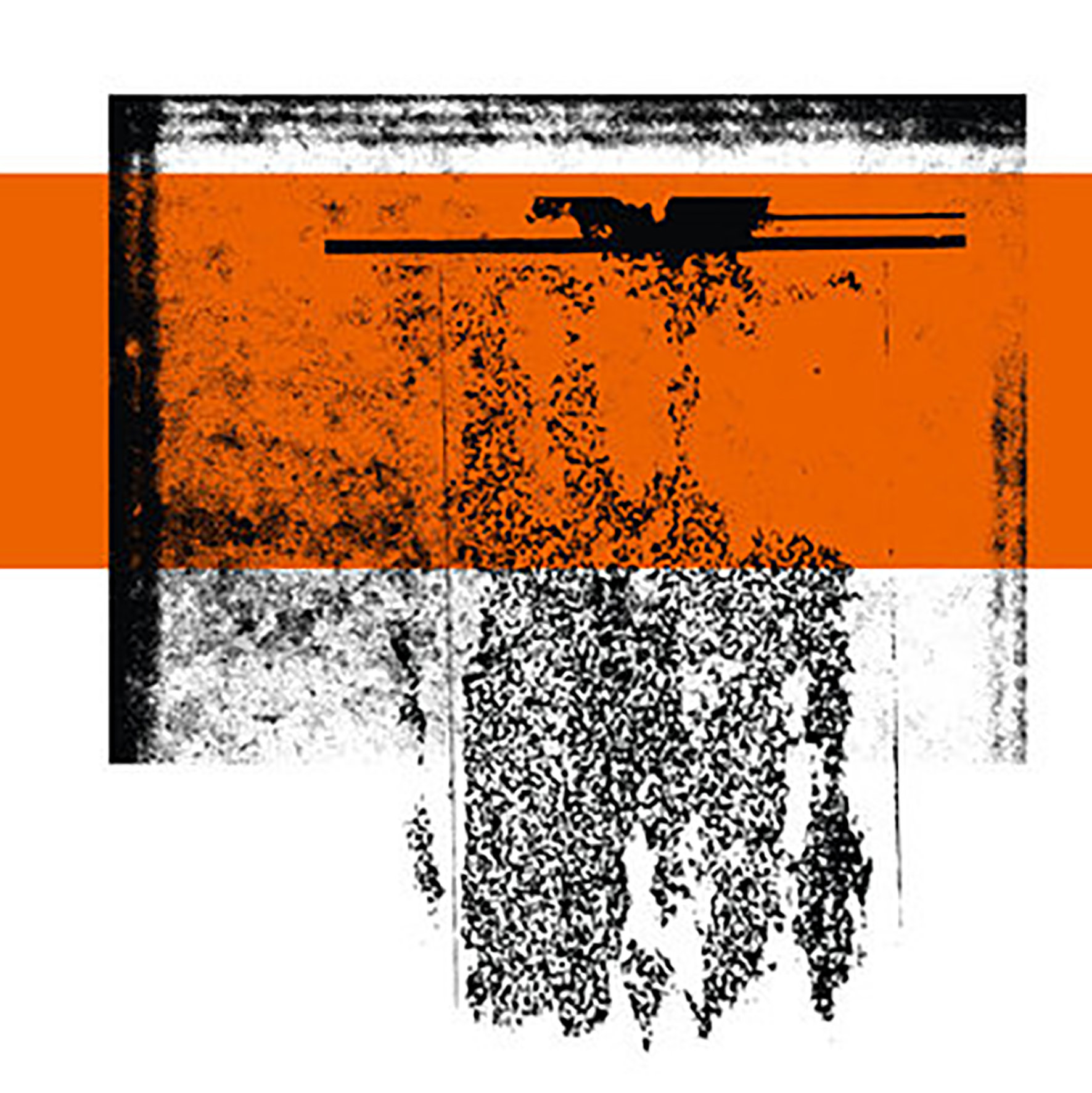
This latest EP from Ren Schofield's reliably intense Container project feels somewhat less like being flattened by an out-of-control train than usual. According to Schofield, his "intentions and goals for this record were to make it way more 'rock' oriented than 'techno,'" but Creamer ultimately landed quite far from anything resembling a recognizable rock album. Schofield also set out to “incorporate some potentially awkward sounding time signatures," but "disguise them as something digestible." There is plenty on Creamer which suggests that Schofield succeeded admirably in that regard, but it is damn near impossible to think about anything as academic as a time signature when a Container album is playing, as the overall impression is invariably bludgeoning, brutal, and ruthlessly shorn of any arty or conceptual pretensions. Like every Container release, Creamer feels like being repeated smacked in the face with a 2x4 by a man who is constantly tweaking and focusing his technique for maximum impact. That said, this EP does feel a bit less hyper-caffeinated than usual and I actually do find that to be "more digestible." It would be a stretch to call Creamer softer than usual though, as this release crams a truly a remarkable amount of innovation and white-knuckle ferocity into a lean, mean, and damn near perfect fifteen minutes.
This EP is comprised of wall-to-wall hits, but the opening title piece feels like its raison d'être and most laser-focused statement of intent. It also makes for quite a bracing opening salvo, as it sounds like Renfield affixed a contact mic to a psychotic electronic bee, then enhanced that splattering and distressed synth blurting with an impressively seismic bass throb. And the crushingly heavy, head-bobbing groove that follows is absolutely top-tier Container. I suspect Schofield is quickly bored by any sustained dip in tension or weirdness though, so "Creamer" soon detours into a pummeling kick drum assault/gnarled squall of synth noise for a minute before locking back into the groove for a final exclamation point. The following "Rippler" is closer to business-as-usual, as it features a hyperkinetic, off-kilter groove and an explosive array of stuttering, laser-like synth splatters. It basically sounds like an out-of-control train barreling into a Pink Floyd tribute light show, which is probably something the world could use more of. Later, "Shingles" feels like an electro-punk pulse erupting from a machine-like locked groove. The beat itself initially feels unusually straightforward, yet Schofield quickly ratchets up the craziness with some truly gnarly electronic mayhem and shifting cymbal patterns to yield a relentlessly clattering, splattering, and malevolently buzzing juggernaut. Naturally, the closing "Sniffers" is yet another monster, as it feels like a stuttering and too-fast breakbeat is constantly threatening to derail while thick synth bubbles violently effervesce in sync with the buzzing bass throb. All of Creamer's four pieces are characteristically great and I continue to be amazed at what Schofield can achieve with such a simple and constrained sound palette. When he is at his best (as he often is here), Schofield achieves a truly singular marriage of ruthless precision, go-for-broke intensity, and endlessly boiling unresolved tension. And he is also a man who knows exactly how to distill a statement to its necessary essence without ever lingering, spinning his wheels, or overstaying his welcome, which I greatly appreciate with music this relentless and physical.
Samples can be found here.
Read More
- Anthony D'Amico
- Albums and Singles
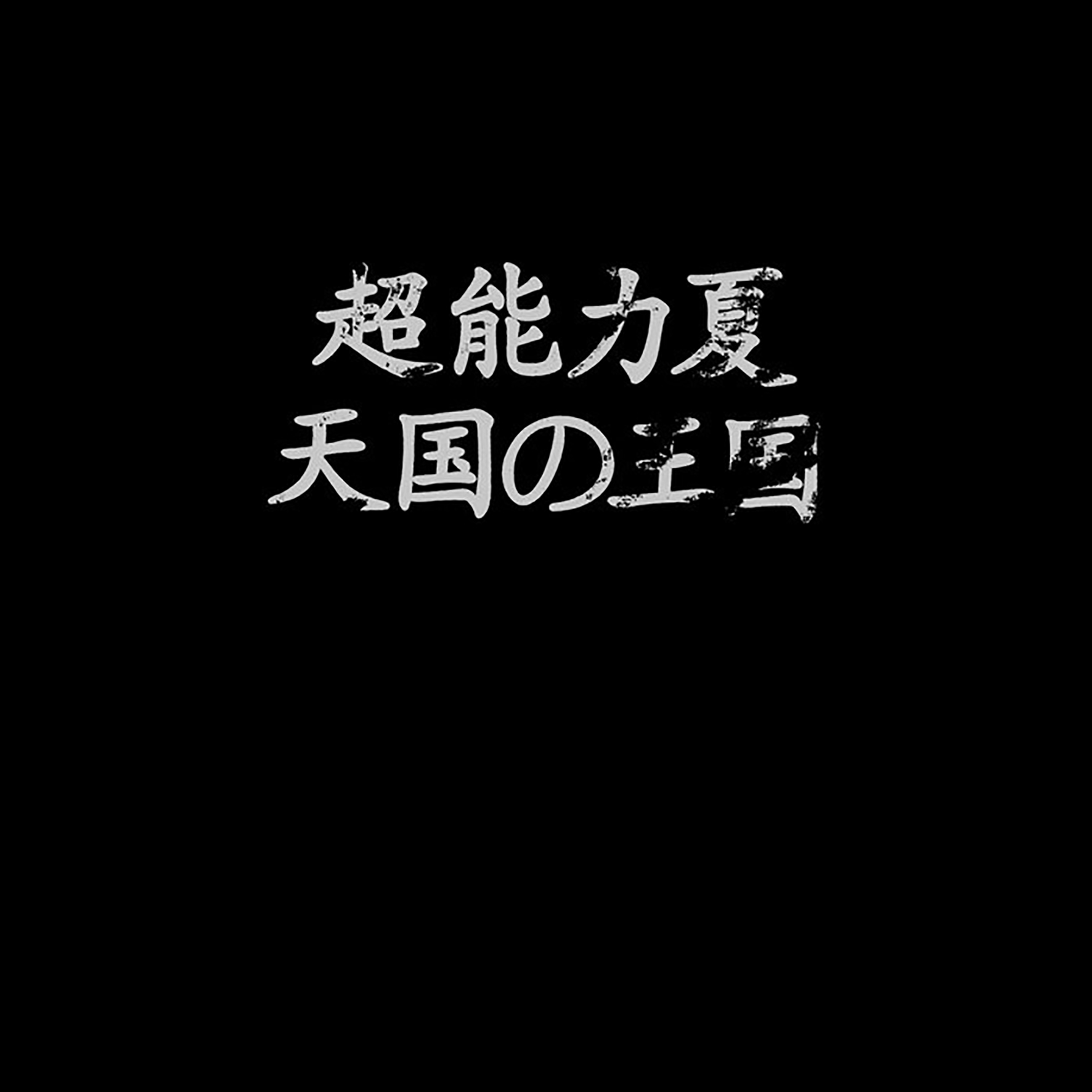 Back in the mid-'90s, His Name is Alive and Pale Saints were labelmates on 4AD and a seemingly one-off studio collaboration between Warren Defever and Ian Masters called ESP Summer was born. While that debut album arguably felt like a too-smooth and straightforward blend of the two artists' aesthetics, it did not take long for deeper eccentricities start appearing, as the project soon started varying its name (ESP Neighbor, ESP Continent), omitting crucial information from album credits, and exclusively releasing limited releases on odd formats. Aside from that, they also went on a 25 year hiatus that finally ended with a pair of releases on Osaka, Japan's Onkonomiyaki label in 2020. Both were quite weird (Here is composed of minimal, vocal-free sound collages), but one of them was also quite good and this is that one: originally a 5" lathe cut vinyl release entitled 天国の王国, the EP is now getting a second life with the translated and apt title Kingdom of Heaven. More specifically, this EP is comprised of four very divergent covers of a single song from the 13th Floor Elevators' 1966 debut (and one written by Powell St. John rather than the band, no less). While the original "Kingdom of Heaven" is a perfectly fine song that was not exactly begging for further enhancements, its strong hooks make it a perfect and sturdy melodic center for Masters and Defever's freewheeling dreampop and psych experimentation. Given the project's oft-inscrutable trajectory, Kingdom of Heaven is an unexpectedly focused, memorable, and compelling release.
Back in the mid-'90s, His Name is Alive and Pale Saints were labelmates on 4AD and a seemingly one-off studio collaboration between Warren Defever and Ian Masters called ESP Summer was born. While that debut album arguably felt like a too-smooth and straightforward blend of the two artists' aesthetics, it did not take long for deeper eccentricities start appearing, as the project soon started varying its name (ESP Neighbor, ESP Continent), omitting crucial information from album credits, and exclusively releasing limited releases on odd formats. Aside from that, they also went on a 25 year hiatus that finally ended with a pair of releases on Osaka, Japan's Onkonomiyaki label in 2020. Both were quite weird (Here is composed of minimal, vocal-free sound collages), but one of them was also quite good and this is that one: originally a 5" lathe cut vinyl release entitled 天国の王国, the EP is now getting a second life with the translated and apt title Kingdom of Heaven. More specifically, this EP is comprised of four very divergent covers of a single song from the 13th Floor Elevators' 1966 debut (and one written by Powell St. John rather than the band, no less). While the original "Kingdom of Heaven" is a perfectly fine song that was not exactly begging for further enhancements, its strong hooks make it a perfect and sturdy melodic center for Masters and Defever's freewheeling dreampop and psych experimentation. Given the project's oft-inscrutable trajectory, Kingdom of Heaven is an unexpectedly focused, memorable, and compelling release.
Amusingly, the opening "Tengoku no ōkoku" sounds like something that would have made quite a splash if it had been released by a 4AD superduo back in 1995, as it resembles a spacier, more dreampop-inspired Joy Division (stark drums, meaty chorus-treated bass, etc.) enhanced with more soulful, melodic vocals. Very few of those traits make the trip into the album's second piece, yet "Kumamushi" is nevertheless another "classic 4AD"-sounding single, albeit one with an asterisk, as it is only an actual song for two of its eight minutes (it dissolves into a bleary ambient outro of reverb-drowned piano and soft-focus wordless vocals). Before that point, however, "Kumamushi" is absolutely gorgeous and opens with a killer early HNIA-style guitar melody. Masters contributes some tender, languorous vocals for his part, but they are more like an additional instrument than the focus. The actual focus of the song comes slightly later, as it unexpectedly explodes into a wonderfully stomping and propulsive passage of dual-guitar harmony. The long wake of ambient shimmer that it leaves behind is enjoyable too, but it is unavoidably eclipsed by the perfect two minutes that proceed it.
In keeping with the EP's theme of endless reinvention, "Taishōgoto o ōkoku" plays "Kingdom of Heaven" fairly straight, as Masters and Defever reduce the song to little more just the lovely vocal melody, a strummed acoustic guitar, and the cool eastern-sounding lead guitar hook. Naturally, the closing "Uchu" dramatically shifts gears once more, stretching out for nearly fifteen ghostly, lo-fi minutes and opening with a virtuosic and nimbly dancing guitar theme that intertwines with a fluttering and serpentine flute melody. Gradually, the expected vocal and guitar melodies appear, but the textures play a crucial role, as the piece has an appealingly hissing, frayed, and lysergic feel. That ghostly atmosphere suits the piece quite nicely, but it is just one facet, as there are also live drums, subtle layers of psychedelia, and a final stretch that feels like a stretched and blurred classical requiem. While a few pieces on this EP could be considered indulgent to a self-sabotaging degree to someone hunting for a perfectly crafted single, I would be hard pressed to find any fault with the release as a whole, as its four songs add up to a soulful and immersive experience and the whole thing is grounded in strong hooks that regularly resurface like a mantra or an inescapable gravitational pull.
Samples can be found here.
Read More
- Anthony D'Amico
- Albums and Singles
 This EP is the debut release from an "all-female rock band" from South Portland, Maine who are notable for several reasons. The biggest of those reasons is probably that the band's singer/guitarist is Quinnisa Kinsella Mulkerin (one-third of Big Blood's current incarnation), but the fact that all three band members are 15 years old is certainly significant as well. Neither of those things would matter all that much if this EP was not also quite good, but it is a remarkably assured and delightful dose of very cool and distinctive garage rock. Unsurprisingly, there are a few welcome resemblances to Quinnisa's other band, as she certainly shares some of Colleen Kinsella's vocal gifts and the two groups share a similar fondness for guitar noise and the assimilation of classic country influences. For the most part, however, Florida Man is quite a different entity altogether, eschewing most of Big Blood's weirder psych elements in favor of something considerably more raw, stripped down, punchy, and concise.
This EP is the debut release from an "all-female rock band" from South Portland, Maine who are notable for several reasons. The biggest of those reasons is probably that the band's singer/guitarist is Quinnisa Kinsella Mulkerin (one-third of Big Blood's current incarnation), but the fact that all three band members are 15 years old is certainly significant as well. Neither of those things would matter all that much if this EP was not also quite good, but it is a remarkably assured and delightful dose of very cool and distinctive garage rock. Unsurprisingly, there are a few welcome resemblances to Quinnisa's other band, as she certainly shares some of Colleen Kinsella's vocal gifts and the two groups share a similar fondness for guitar noise and the assimilation of classic country influences. For the most part, however, Florida Man is quite a different entity altogether, eschewing most of Big Blood's weirder psych elements in favor of something considerably more raw, stripped down, punchy, and concise.
The opening "Yesterday's Air" is an excellent introduction to the band, as it captures the trio at the peak of their powers. It is primarily anchored by Helen Bonnevie-Rothrock's punky and muscular descending bass line, but it is also beautifully enhanced by a gnarled and howling bit of guitar noise. The shuffling and shambling "Twilight Filter" does not quite reach the same heights, but it does feature a very cool (if brief) passage where the vocals and guitars drop out entirely to leave only the groove and some subtle string noise. The EP's strongest piece is the jangling bittersweet cowpunk of "Lady Thimble," as Quinnisa's vocals are at their most soulful and melodic. Quinnisa's vocals also elevate the simmering and somnambulant-sounding "Lost in the Woods," as they are beautifully layered and harmonized. I also appreciated the fact that it opened with a cryptic sample of a voice (possibly Quinnisa's) saying "I'm lost…in the dark…of the woods," as it injects a small bit of eerie weirdness into the proceedings (a thread that is picked up again for the piano motif in the song's brief fadeout). For the most part, however, Florida Man keep the strangeness and psychedelia to an absolute minimum. In some ways, that means that this EP sounds exactly like three teenagers jamming in a garage: simple song structures, simple riffs, plenty of sincerity and no added polish or self-conscious artiness. On another level, however, this EP is way better than I ever would have expected, as this trio are unusually good songwriters and they seem to intuitively "get it" on a level that most considerably older and more experienced garage bands do not. This project is definitely off to a great start. Hopefully future Florida Man releases allow more some eccentricities to bleed into their songs, but they are already at a place where they seemingly have no problem nimbly dodging wrong moves or clumsy indulgences, which is far more than I could have said about myself at the same age.
Samples can be found here.
Read More
- Anthony D'Amico
- Albums and Singles
 I was inexplicably late to the party on this wonderful London quartet, as the presence of drummer Valentina Magaletti is almost always a reliable indicator that something compelling is happening and that is especially true of this project. Fortunately, I realized my mistake when I chanced upon their 2019 single "Magician's Success" and its delightfully surreal video, which scratched exactly the same itch as all my favorite Broadcast and Stereolab songs (two acts that Vanishing Twin is probably damned to be compared to forever). While I would admittedly be thrilled if Vanishing Twin simply picked up where those two other brilliant bands left off, their actual influences are considerably more wide-ranging and endlessly mutating (Morricone, Sun Ra, Martin Denny, and Alice Coltrane are just a few of the band's explicit inspirations this time around). That said, the album does kick off with yet another excellent and welcome single in the vein of prime Stereolab (the title piece), yet the foursome also achieve a similar degree of success elsewhere with more disco- and swinging '60s film soundtrack-inspired fare. For the most part, I look to Vanishing Twin primarily for great singles at this point and Ookii Gekkou includes at least three of those, so I consider it a success. The rest of the album occasionally verges on being too smoothly poppy for my taste, but the omnipresent virtuosic rhythm section of Magaletti and bassist Susumu Mukai goes a long way towards keeping the album groovy and fun enough to keep me interested regardless.
I was inexplicably late to the party on this wonderful London quartet, as the presence of drummer Valentina Magaletti is almost always a reliable indicator that something compelling is happening and that is especially true of this project. Fortunately, I realized my mistake when I chanced upon their 2019 single "Magician's Success" and its delightfully surreal video, which scratched exactly the same itch as all my favorite Broadcast and Stereolab songs (two acts that Vanishing Twin is probably damned to be compared to forever). While I would admittedly be thrilled if Vanishing Twin simply picked up where those two other brilliant bands left off, their actual influences are considerably more wide-ranging and endlessly mutating (Morricone, Sun Ra, Martin Denny, and Alice Coltrane are just a few of the band's explicit inspirations this time around). That said, the album does kick off with yet another excellent and welcome single in the vein of prime Stereolab (the title piece), yet the foursome also achieve a similar degree of success elsewhere with more disco- and swinging '60s film soundtrack-inspired fare. For the most part, I look to Vanishing Twin primarily for great singles at this point and Ookii Gekkou includes at least three of those, so I consider it a success. The rest of the album occasionally verges on being too smoothly poppy for my taste, but the omnipresent virtuosic rhythm section of Magaletti and bassist Susumu Mukai goes a long way towards keeping the album groovy and fun enough to keep me interested regardless.
The lead-off "Big Moonlight (Ookii Gekkou)" certainly kicks the album off on an extremely strong note, as it feels like an arty and pleasantly lilting throwback to classic French pop. That is admittedly quite close to Stereolab territory, but Vanishing Twin put their own distinctive twist on that stylistic terrain, as their grooves are much more muscular and pared down than typical ‘Lab fare. There are also some nice surreal touches like a twangy surf/spy movie guitar motif, a twinkling xylophone theme, and a great flute hook to further flesh out Cathy Lucas's sensuously sing-song vocal melody. The overall feel is akin to a haunted and seductive trip down an Alice in Wonderland-style rabbit hole of breezy psychedelia. Similarly excellent is the simmering and funky disco vamp of "Phase One Million," which is essentially just a killer groove with a neat cowbell stutter (and that is absolutely all it needs). Later on, the album's third and arguably final great single materializes in the form of "In Cucina," which boasts a great rolling groove with plenty of percussion flourishes. It feels like a kindred spirit to "The Snake" from Tomaga's Intimate Immensity, approximating an aesthetic best described as "climactic scene from a '60s spy movie that features a wild dance party at a Moroccan brothel." The remaining pieces are a mixed bag of sorts, but not from lack of inspiration: Vanishing Twin's muse just tends to lead them into some very bizarre and highly specific stylistic niches that are sometimes not my thing. For example, "Zuum" sounds like Silver Apples teamed up with The Fifth Dimension for a spacey rock opera, while "The Organism" feels like a darkly lysergic horror film in which the protagonist is stalked by an infernally possessed marimba or xylophone. Some of those divergent paths do hold some allure for me (the post-punk/motorik groove-fest "Tub Erupt"), while some others simply do not ("The Lift" feels like a Swing Out Sister song interrupted by a jabbering robot). Obviously, I wish I loved every single song on Ookii Gekkou, but I do genuinely love Vanishing Twin, as they are consistently ingenious in both assimilating new influences and crafting killer uncluttered arrangements. When this band hits the mark, they can seem downright untouchable, so I do not mind sifting through a handful of misfires to find a couple of gems that will no doubt remain in my heavy rotation for years.
Samples can be found here.
Read More
- Anthony D'Amico
- Albums and Singles
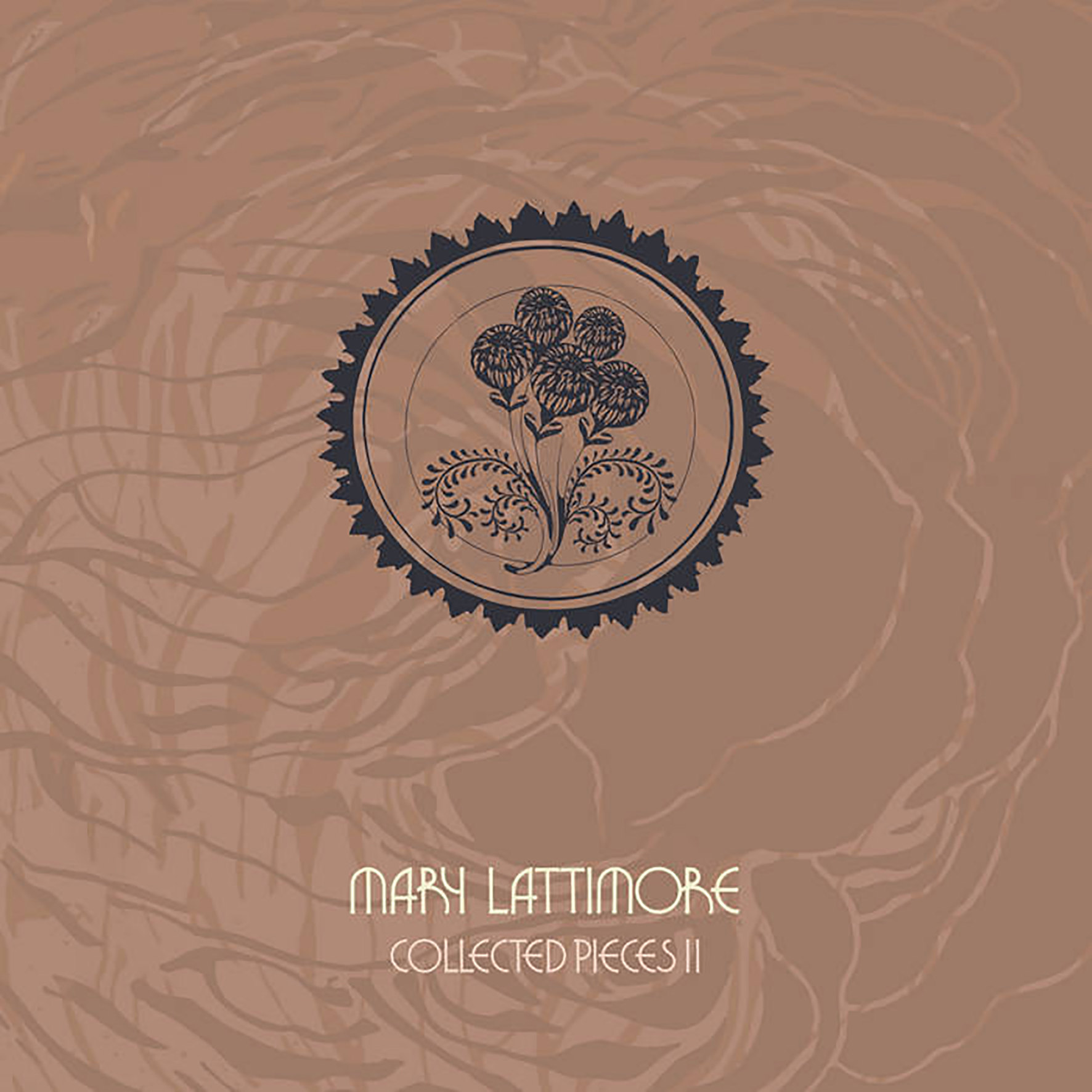 I believe I first started to become beguiled with Mary Lattimore's work with the release of 2016's At the Dam, but the following year's Collected Pieces definitely deepened my interest further, as it featured at least two stone-cold instant classics (and the rest of it consistently flirted with similar levels of greatness). While that first collection sets the bar intimidatingly high for this second cassette of unreleased songs, digital-only Bandcamp singles, and other stray pieces, Lattimore tends to be admirably discriminating in what she chooses to release and she has been on a bit of a compositional hot streak over the last couple years. Needless to say, there is plenty to enjoy here. As a whole, this second volume is probably a bit less uniformly strong than its predecessor, but it too contains a few pieces that most Lattimore fans will consider essential. Moreover, a couple of them are not included on the Collected Pieces: 2015‚Äã-‚Äã2020 double LP slated for release in January. As such, only casual Lattimore fans can safely pass up this stand-alone collection, as serious harp-heads will probably not want to deny themselves the pleasures of "Sleeping Deer" and "Princess Nicotine."
I believe I first started to become beguiled with Mary Lattimore's work with the release of 2016's At the Dam, but the following year's Collected Pieces definitely deepened my interest further, as it featured at least two stone-cold instant classics (and the rest of it consistently flirted with similar levels of greatness). While that first collection sets the bar intimidatingly high for this second cassette of unreleased songs, digital-only Bandcamp singles, and other stray pieces, Lattimore tends to be admirably discriminating in what she chooses to release and she has been on a bit of a compositional hot streak over the last couple years. Needless to say, there is plenty to enjoy here. As a whole, this second volume is probably a bit less uniformly strong than its predecessor, but it too contains a few pieces that most Lattimore fans will consider essential. Moreover, a couple of them are not included on the Collected Pieces: 2015‚Äã-‚Äã2020 double LP slated for release in January. As such, only casual Lattimore fans can safely pass up this stand-alone collection, as serious harp-heads will probably not want to deny themselves the pleasures of "Sleeping Deer" and "Princess Nicotine."
There a few things that one can reliably expect from a new Mary Lattimore album: plenty of tenderly beautiful melodies, lightness of touch, and an intuitive genius for dynamics. Consequently, even the lesser pieces on Collected Pieces II are quite good, but the reason I absolutely need to hear everything that Lattimore releases is that she occasionally reaches heights of inspiration that transcend the fundamental limitations of a harp album altogether and I do not want to miss any of those moments. Some of those moments are a more radical departure than others though and one of the less radical ones is the album's lead single "We Wave From Our Boats," which dates from the earliest days of the pandemic (Lattimore found herself waving to neighbors she did not know "in a gesture of solidarity" akin to "how you're compelled to wave at people on the other boat when you're on a boat yourself"). Apparently, it was an improvisation, but the delicate, bittersweet melody is wonderful and I love the way the flutes add a bleary haze of unreality that slowly burns away to reveal a warm, sun-dappled crescendo. "For Scott Kelly, Returned to Earth" is another winning foray into expected Lattimore terrain, as layers of rippling, sweeping, and pulsing arpeggios cohere into a vibrant and twinkling web of sublime loveliness. Both pieces are wonderful, of course, but I am especially fond of two comparative outliers that found their way onto the album. The first is the previously unreleased "Sleeping Deer," which was inspired by an orphaned deer (Lollipop) that Lattimore befriended during a residency on a Wyoming cattle ranch. Despite its adorable inspiration, it is probably the darkest piece on the album, as its tender, sadness-tinged melody is enhanced with stammering effects, backwards snarls, and pitch-bending bass drones. The other surprise gem is the textural tour de force of "What the Living Do," as a simple repeating melody is processed into something glimmering and spectral that calls to mind ghosts slowly dancing in the light of a stained glass window. The album is rounded out with a pair of pieces inspired by silent films (always nice to see a Bill Morrison reference), an unexpectedly radiant breakup song, a home-recorded version of Silver Ladders' "Pine Trees," and a 13-minute epic about "a Charlie Chaplin-like character who lost their glasses." Overall, it is yet another strong batch of songs from Lattimore, reaffirming that her home recordings can be every bit as transfixing as her studio ones (even if she leaves her effects pedals largely untouched).
Samples can be found here.
Read More
- Anthony D'Amico
- Albums and Singles
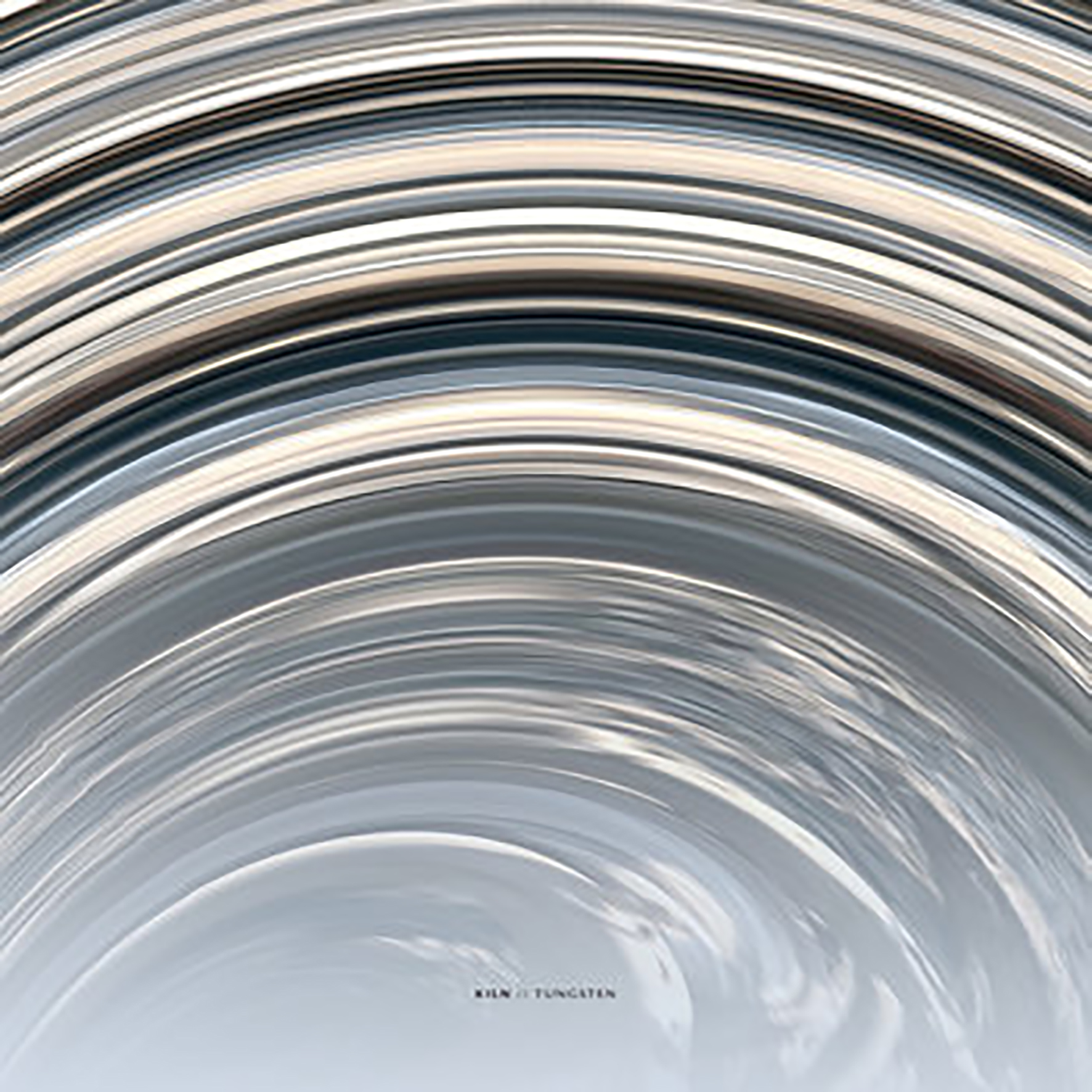
I have been vaguely aware of this unusual and beloved midwestern IDM/post-rock trio for years, but figured they were probably too conventionally likable for my taste. As it turns out, I was only half-right: KILN are indeed quite fond of straightforward mid-tempo grooves and lovely melodies, but they masterfully balance those poppier tendencies with quite a lot of inspired textural layering and other experimentally minded enhancements. I guess the lesson here is that some great projects have a brilliant vision, but there are also some equally great ones that simply excel in the execution of a more modest vision. KILN are mostly the latter and they are often quite brilliant at what they do, which is why their 2020 return after a seven-year hiatus was greeted with so much enthusiasm despite working in stylistic realm that is no longer particularly in vogue. This latest release is "a digital-only adjunct EP" of pieces recorded at the same time as last year's Astral Welder that "weave syncopated patterns into immersive environments of lost memory and electrified nowness." I was very surprised to learn that Tungsten is arguably comprised of pieces that did not make the cut for the band's triumphant return full-length, as there are some killer songs here that would unquestionably improve just about any album that they landed on. Maybe these songs just needed a bit more tweaking before they were ready to be unveiled. In any case, I hereby decree that 2021 is the year of electrified nowness and that I am now an enthusiastic KILN fan.
The opening "Drala Ultra" shares a lot of common ground with great dub-techno, as it prominently features some warm and stammering synth swells, but the other elements of the piece (gurgling bass and a slow-motion breakbeat) are considerably more muscular and in-your-face than anything I would expect from a classic Chain Reaction album. While it is certainly an enjoyable piece, it is instantly eclipsed by the following "North Bar Lake," which gorgeously brings together a swirl of sun-dappled pedal steel melodies with dreamily fluttering flutes and a great shuffling groove. It strikes an absolutely sublime balance of gentle swaying psychedelia, strong hooks, crunching physicality, and propulsive forward motion with nary a misstep in sight. The trio also display real knack for more intuitive touches like deftly manipulating dynamics and avoiding any needless clutter, which is a set of skills that can be a rarity outside the realm of top-tier techno and hip-hop producers. Remarkably, KILN somehow manage to pack this modest six-song release with at least two other gems that scale similar heights. The most immediately gratifying of the two is "Argon Pedestrian," which feels like a rubbery, blurting, and lurchingly funky strain of futuristic fusion enhanced with skittering cymbals and a host of subtly hallucinatory touches. It took me a bit longer to warm to simmering and weirdly anthemic-feeling "Bvlb," but the gurgling groove steadily intensifies to a wonderfully stilted, slow-motion funkiness that is hard to resist. As for the remaining pieces, their only flaw is that they are merely less substantial. Aside from a few notable exceptions like People Like Us, there are not a lot of artists that can reliably balance fun, catchiness, and psych-damaged experimentation in a winning way, so it is welcome and refreshing to discover that this threesome is out to help fill that yawning void in such expert fashion. This is a wonderful EP.
Samples can be found here.
Read More

